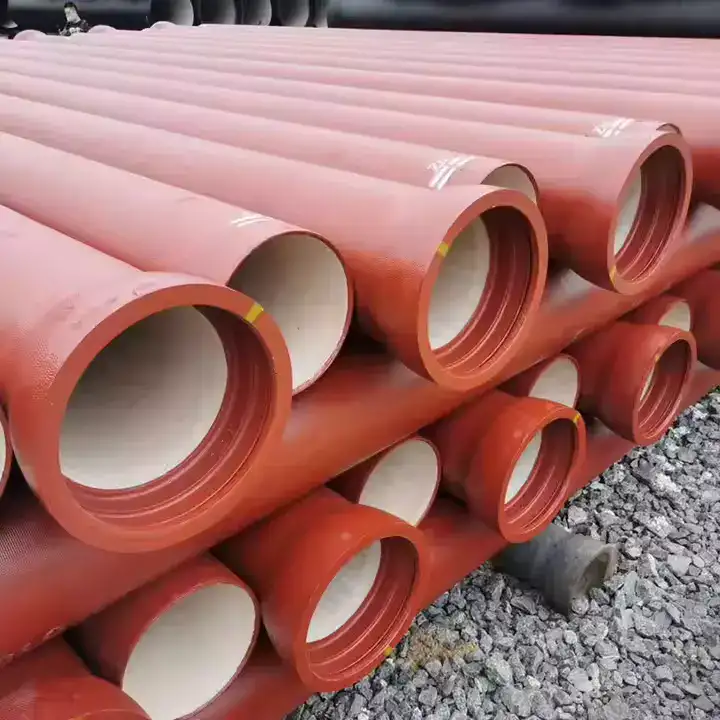Haas Automation’s CNC machines feature heavy gray cast-iron construction—specifically Meehanite®-grade gray iron—rather than ductile iron. This choice leverages the high damping capacity, dimensional stability, and rigidity of fine-grained gray cast iron to minimize vibration and ensure precision machining. While ductile iron offers superior toughness and elongation, it does not match the vibration-dampening performance required for stable metal cutting operations. Meehanite cast iron, a patented process producing consistently fine graphite flake structures, is the industry standard for machine-tool bases—including Haas machines—providing long-term accuracy and minimal thermal distortion under heavy loads.

1. Introduction to Haas Machine Construction
Haas Automation, Inc., headquartered in Oxnard, California, is the largest builder of CNC machine tools in North America, producing vertical and horizontal machining centers, lathes, and rotary tables. A critical factor in machine design is the choice of casting material for the base, column, and saddle, which directly affects rigidity, stability, and vibration control during cutting.
2. Gray Cast Iron vs. Ductile Iron
2.1 Gray Cast Iron
-
Microstructure: Flake graphite in a pearlitic or ferritic matrix.
-
Properties: High compressive strength (600–1,000 MPa), excellent vibration damping (loss coefficient 0.01–0.035), hardness 130–310 HB.
-
Limitation: Brittle in tension, negligible elongation (< 1 %).
2.2 Ductile (Nodular) Iron
-
Microstructure: Spheroidal graphite nodules in a ferrite–pearlite matrix.
-
Properties: Good tensile strength (415–550 MPa), elongation up to 18 %.
-
Limitation: Lower damping capacity compared to gray iron.
3. Why Meehanite® Cast Iron Is the Industry Standard
“Meehanite” is a trademarked process that produces fine-grain, flake-graphite gray irons under tightly controlled conditions, ensuring uniform mechanical properties and exceptional damping. Licensed foundries worldwide cast machine-tool frames, beds, and saddles using Meehanite specifications because:
-
Rigidity & Stability: Fine grain structure and heavy ribbing resist deformation under heavy cutting loads.
-
Vibration Damping: Graphite flakes disrupt vibrational energy, leading to superior surface finish and tool life.
-
Thermal Stability: Reduced thermal expansion and high heat capacity minimize distortion during long runs.
4. Haas Machine Castings
All Haas machining centers and lathes employ heavy gray cast-iron frames:
| Machine Series | Construction Note |
|---|---|
| VF Series VMC | “Heavy cast-iron construction yields the rigidity and stability necessary for heavy cutting” |
| Small-Frame VFs | Rigid cast-iron base, column, and saddle designed and built in Oxnard, CA |
| EC-500 Lathes | Rigid gray cast-iron slant-bed casting with heavy ribbing for stability and chip management |
Although Haas’s public materials reference only “cast-iron,” the machine-tool industry customarily specifies Meehanite-grade gray iron for all critical components of high-precision CNC equipment.
5. Material Comparison Table
| Feature | Meehanite® Gray Cast Iron | Ductile (SG) Iron |
|---|---|---|
| Graphite Form | Flake | Nodules |
| Tensile Strength | 200–450 MPa | 415–550 MPa |
| Elongation at Break | < 1 % | Up to 18 % |
| Modulus of Elasticity | ~ 140 GPa | ~ 170 GPa |
| Vibration Damping | High (0.01–0.035) | Moderate |
| Typical Use in CNC Tools | Bed, column, saddle | Gears, crankshafts (non-base) |
6. Advantages of Gray Cast Iron in Haas Machines
-
Superior Damping: Reduces chatter and improves surface finish under heavy feeds.
-
Dimensional Accuracy: Fine-grain structure maintains tight tolerances over long production runs.
-
Thermal Stability: High heat capacity mitigates thermal growth in critical axes.
-
Wear Resistance: Uniform microstructure resists abrasion and retains guide-way geometry.
-
Cost-Effectiveness: Gray iron is more economical to cast and machine than ductile grades.
7. FAQ
Q1: Are Haas machines made from ductile iron?
No. Haas uses gray cast iron—specifically Meehanite®-grade gray iron—for its machine frames, not ductile iron.
Q2: Why not use ductile iron for better toughness?
While ductile iron is tougher, its lower damping and higher cost make it less suitable for static, vibration-sensitive CNC bases.
Q3: What is Meehanite®?
A licensed process producing fine-grain gray irons with consistent properties, ideal for precision machine-tool components.
Q4: Can machine bases be repaired if a crack forms?
Minor repair welds are possible, but significant cracks typically require recasting to restore structural integrity.
Q5: Do other CNC builders use the same material?
Yes; most leading CNC manufacturers—Toyoda, AV-Tech, Clausing—also specify Meehanite-grade gray cast iron for their machine frames.
References:
- Gray Cast Iron – Wikipedia: Properties and Applications in Machine Tools
- Meehanite Metal Corporation – Official Site: About Meehanite® Cast Iron Process and Standards
- Modern Machine Shop – Materials Used in Machine Tool Bases: Importance of Gray Cast Iron
- Haas Automation – Official Website: Machine Construction and Material Choices
- Engineering Toolbox – Cast Iron Properties: Comparison of Gray and Ductile Iron
